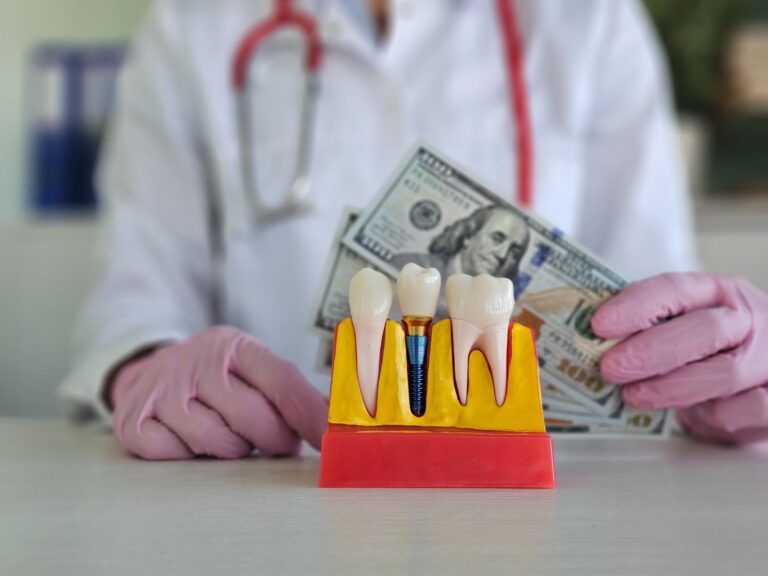Okay, confession time. A few years ago, I was in the middle of a personal “teeth crisis.”
I’d chipped my front tooth on some overambitious popcorn (yes, popcorn), and as someone who prides herself on flashing a bright smile, I freaked out.
I needed something fast, but I didn’t want to spend my life savings on fixing one little tooth. So, naturally, I turned to the magic of veneers.
Fast-forward to now, and let me tell you—veneers have transformed my grin. But, before you googling “how much do veneers cost,” there are a few things you should know.
Don’t worry—I got you covered with all the juicy details. So, let’s talk prices, options, and everything you need to consider before jumping in!
How Much Do Veneers Cost ?
Let’s get to the good stuff—the numbers. Here’s the deal: veneers aren’t cheap. In fact, they can cost anywhere from $800 to $2,500 per tooth depending on the type, your location, and your dentist’s expertise. I know, it’s a pretty wide range, but here’s where things get interesting.
If you’re looking at porcelain veneers (the most common and natural-looking type), expect to pay towards the higher end of that range. These babies last longer, look realer, and, let’s be honest, they’ll make you feel like a million bucks when you smile in the mirror. Composite veneers, on the other hand, are more affordable but also less durable.
But hey, don’t just look at the price tag. There are a lot of factors that could influence the final cost. Don’t worry—I’m breaking it all down for you.
What Factors Affect Veneer Prices?

Sure, the general cost is a good starting point, but when you ask “how much do veneers cost,” the answer could vary. A lot. The following factors come into play and are worth considering when budgeting for this smile makeover:
Location, Location, Location: Where you live plays a massive role. Veneers in big cities or upscale areas (think Beverly Hills or NYC) are going to cost you more, simply because of the market demand and high-end clientele. If you’re in a smaller town or rural area, you may score a lower price—lucky you!
Your Dentist’s Skill and Reputation: You get what you pay for, darling. A highly sought-after dentist with a killer reputation is probably going to charge more for veneers, but if you want top-notch results, it might be worth the investment. That said, don’t just pick a dentist because they have a fancy office—do your research, check reviews, and maybe even book a consultation before you commit.
The Type of Veneer You Choose: As mentioned, porcelain veneers are pricier, but you’re getting a more durable, realistic look. Composite veneers are more affordable but may need to be replaced sooner. There’s also the choice between lab-made veneers versus in-office “instant” veneers, which could impact the price too.
Are Veneers Worth the Price Tag?

Now that you know the cost breakdown, you’re probably wondering: “Are veneers worth it?” To answer that—oh, absolutely!
Veneers give you that A-list smile that seems to radiate confidence, and for many people, it’s totally life-changing. Whether you’ve got crooked, discolored, or worn-down teeth, veneers can correct all of that and more. I mean, who doesn’t want to look like they just walked out of a Hollywood film?
The great part about veneers is that they’re a long-term solution. With proper care, they can last anywhere from 10-20 years, which isn’t too bad when you think about how much you spend on other cosmetic procedures that don’t even last. Also, porcelain veneers are stain-resistant, meaning your teeth stay sparkling white for years—no more worrying about coffee stains.
So, are they worth it? If you want to invest in your smile and are willing to put in the cash, then yeah, it’s a pretty solid investment.
How to Make the Most of Veneers
Okay, you’re sold. But how do you make the most of your veneers once you’ve dropped the cash? It’s all about maintenance and care, honey! Here’s how you can ensure your veneers last as long as possible and continue looking fabulous:
1. Brush and Floss Regularly: Veneers aren’t invincible, so treat them like your natural teeth. Brush at least twice a day and floss to remove any plaque. Just be gentle, okay? No need to scrub like you’re scrubbing grout—be kind to those pearly whites.
2. Watch What You Eat: Don’t go on a binge of things that can stain, like red wine, coffee, or berries. I’m not saying you can’t ever have them, but maybe not on a daily basis. Plus, hard or sticky foods can chip or damage your veneers, so chew wisely.
3. Regular Checkups: Keep up with dental checkups. It’s important to have your veneers checked to make sure everything’s in tip-top shape. Don’t wait until something breaks. Prevention is cheaper than repairs.
4. Avoid Teeth Grinding: If you grind your teeth, get a nightguard. The constant pressure from grinding can damage your veneers over time. Just trust me, it’s better to sleep with one than have to replace a broken veneer.

FAQ: What You Really Want to Know About Veneers
1. Can veneers fix crooked teeth?
Absolutely! Veneers are a great option for fixing minor alignment issues. If you’re dealing with severely crooked teeth, braces or clear aligners might be better for you, but veneers can definitely improve the appearance of slightly misaligned teeth.
2. How long do veneers last?
On average, porcelain veneers last anywhere from 10 to 20 years, depending on your oral habits and how well you take care of them. Composite veneers generally last 5 to 7 years, but they’re cheaper to replace. The key to longevity? Proper care and avoiding habits that could damage them.
3. Can veneers be removed?
Unfortunately, once porcelain veneers are placed, they can’t be easily removed. The process involves shaving down a small amount of your tooth enamel, which makes them permanent. Composite veneers are easier to remove or adjust, but they don’t last as long as porcelain. So, make sure you’re ready for the commitment!
4. Are veneers painful to get?
Nope, getting veneers is a pretty comfortable process. Your dentist will numb the area before any work is done, so you shouldn’t feel any pain during the procedure. Afterward, you may experience some mild sensitivity, but it typically goes away within a few days. No need to fear the dentist’s chair!
Final Scoop Before You Jump In
Alright, here’s the deal: getting veneers is a pretty big decision, and yeah, it can be expensive. But if you’ve been dreaming of a perfect smile and want to make a lasting investment in your confidence, then it’s worth considering. Just make sure to do your research, find a qualified dentist, and take care of your new smile.
Pro tip: don’t rush the decision—take your time to find the right solution for your teeth, and make sure you’re financially prepared. Once you make the investment, you’ll be flashing that gorgeous smile like it’s your new best accessory. And let’s be real, you deserve it!







